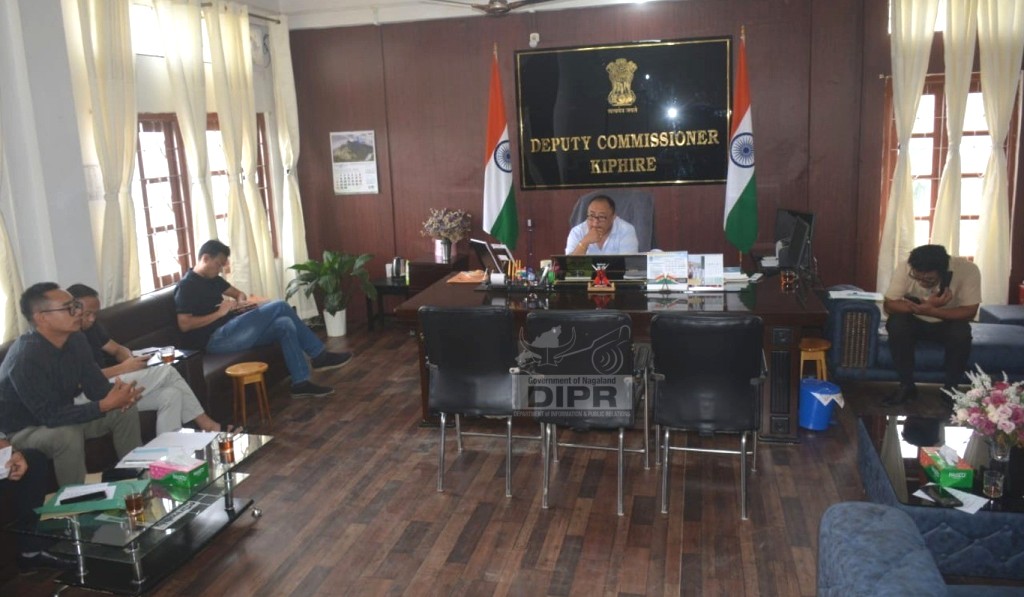Deputy Commissioner Temsuwati Longkumer stressed transparency in implementing water schemes in Kiphire, reviewing Jal Jeevan Mission, Swachh Bharat Mission, and measures for water security.
Share

DIMAPUR — A meeting of the District Water and Sanitation Mission (DWSM) Committee, Kiphire, was held at the office chamber of the deputy commissioner, Kiphire, on September 9.
According to a DIPR report, chairing the programme, Deputy Commissioner and Chairman, DWSM, Temsuwati Longkumer, said that Kiphire being an aspirational district, many projects and schemes are being provided from the Centre.
He urged the members to maintain transparency with dedication while implementing the schemes and projects in various departments.
Also read: Kumar Ramnikant highlights Unified Logistics Interface Platform as key to digital transformation
The meeting deliberated on the progress review of ongoing programmes of Jal Jeevan Mission (JJM) in household tap connections, coverage, and functional status; the status of Swachh Bharat Mission (SBM-G) for ODF sustainability; and the review of rainwater harvesting projects and groundwater recharge works.
Discussions were held on planning and implementation issues, which included the preparation of village action plans (VAPs) and their integration into the district action plan. Focus was laid on the prioritisation of water-stressed villages and measures for drinking water security, ensuring equity and inclusion by covering vulnerable groups, marginalised communities, and far-flung habitations, as well as strategies for summer preparedness and tackling seasonal water scarcity.
Quality and sustainability were also addressed, with emphasis on the status of water quality testing labs at the district and block levels and the use of village water testing kits. Actions taken for arsenic, fluoride, iron contamination, or other water quality issues were discussed, along with sustainability measures such as source strengthening, catchment protection, and spring rejuvenation.
Capacity building and IEC were highlighted through the training of Village Water and Sanitation Committees (VWSCs) or Pani Samitis, awareness generation campaigns on safe water use, hygiene, sanitation, and hand washing, as well as IEC activities under SBM-G and JJM.
Operation and maintenance (O&M) of piped water supply schemes were reviewed, with the role of gram panchayats and WATSANs in O&M stressed.
The meeting further reviewed finance and fund utilisation, covering funds received under JJM, SBM-G, and other related schemes, expenditure incurred, pending UCs, and bottlenecks in fund flow. It also included discussions on mobilising CSR support for water and sanitation infrastructure.
Monitoring and evaluation were taken up with reference to the MIS and data entry status on IMIS portals (JJM/SBM), third-party verification and monitoring reports, and grievance redressal and feedback from villages.
Special issues were discussed, including emergency response measures for disease outbreaks linked to water contamination and specific directions from the State Water and Sanitation Mission.
The DC reminded the Public Health Engineering Department (PHED) and the Kiphire Town Ward chairman to locate and oversee the naturally sufficient sources of water at rivers and lakes and report them in the next meeting.